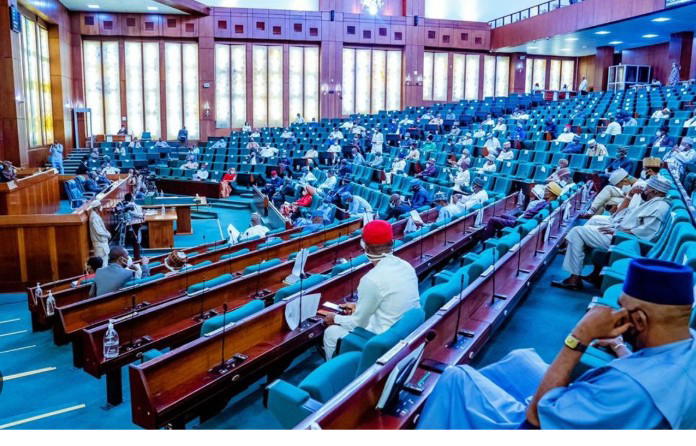By Gift ChapiOdekina, Abuja
The House of Representatives has begun deliberation on a constitutional amendment bill seeking to clearly define the taxation powers of the Federal, State, and Local Governments, as part of efforts to eliminate multiple taxation and enhance fiscal transparency in Nigeria.
The bill, titled “A Bill for an Act to Alter the Constitution of the Federal Republic of Nigeria, 1999 (as Altered), to Clarify the Taxation Powers of the Federal, State, and Local Governments; Define the Scope of Taxes and Levies Collectible by Each Tier of Government; Prevent Multiple Taxation and Unlawful Outsourcing of Revenue Collection; and for Related Matters (HB.2545)”, was sponsored by the Deputy Speaker of the House, Rt. Hon. Benjamin Okezie Kalu, alongside Hon. Chris Nkwonta, Hon. Tolani Shagaya, Hon. Daniel Asama Ago, Hon. Alex Egbona, Hon. Nkemkanma Kama, and Hon. Joshua Audu Gana.
Leading debate on the general principles of the bill, Rt. Hon. Kalu explained that the proposed amendment seeks to “bring order where confusion reigns, create clarity where overlaps persist, and ensure that every naira raised, shared, or spent by government is traceable, lawful, and transparent.”
He observed that Nigeria’s fiscal structure has become “congested and conflicting,” with different tiers of government imposing similar or overlapping taxes and levies on the same taxpayers — a practice that has resulted in inefficiencies, disputes, and loss of public trust in the nation’s tax system.
“The disputes over Value Added Tax (VAT), Stamp Duties, and Personal Income Tax are clear examples of how overlapping taxation powers have created tension between the Federal and State Governments,” Kalu noted.
He further expressed concern over the growing trend of outsourcing tax collection to private consultants, describing it as an unlawful practice that fuels corruption, harassment of citizens, and revenue leakages.
To address these challenges, the bill proposes several key reforms, including:
Clarifying jurisdiction over Stamp Duties, stipulating that those on corporate transactions fall under the Federal Government, while those on individual transactions are the responsibility of State Governments.
Introducing VAT or Consumption Tax as a distinct item on the Exclusive Legislative List, to provide constitutional backing for uniform VAT administration nationwide.
Prohibiting the outsourcing of tax collection to private entities or consultants.
Capping the total number of taxes and levies that can be imposed on an individual’s income, consumption, or property within a year at nine.
Streamlining local government taxation to prevent undue harassment of traders, artisans, and small business owners.
According to Kalu, the passage of the bill would help reduce intergovernmental conflicts, strengthen fiscal discipline, and promote better coordination in Nigeria’s revenue collection and budgeting systems.
“If this Bill is passed, it will strengthen fiscal discipline, improve budget predictability, and restore public confidence in the tax system,” he said, urging his colleagues to support the bill for second reading and refer it to the Committee on Constitution Review for further legislative consideration.
He added, “Through this amendment, we can lay the constitutional foundation for a fiscally disciplined, transparent, and efficient Nigeria.”
The post Reps move to clarify tax powers, end multiple taxation through constitutional amendment appeared first on Vanguard News.

